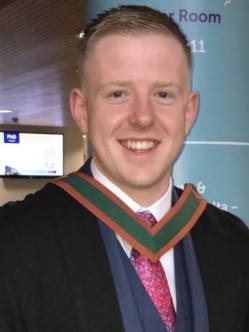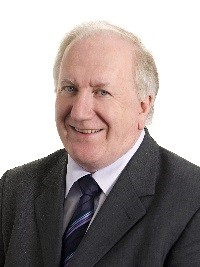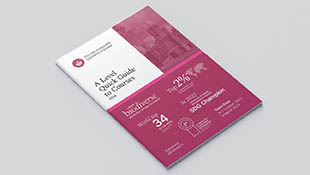-
Courses

Courses
Choosing a course is one of the most important decisions you'll ever make! View our courses and see what our students and lecturers have to say about the courses you are interested in at the links below.
-
University Life

University Life
Each year more than 4,000 choose University of Galway as their University of choice. Find out what life at University of Galway is all about here.
-
About University of Galway

About University of Galway
Since 1845, University of Galway has been sharing the highest quality teaching and research with Ireland and the world. Find out what makes our University so special – from our distinguished history to the latest news and campus developments.
-
Colleges & Schools

Colleges & Schools
University of Galway has earned international recognition as a research-led university with a commitment to top quality teaching across a range of key areas of expertise.
-
Research & Innovation

Research & Innovation
University of Galway’s vibrant research community take on some of the most pressing challenges of our times.
-
Business & Industry

Guiding Breakthrough Research at University of Galway
We explore and facilitate commercial opportunities for the research community at University of Galway, as well as facilitating industry partnership.
-
Alumni & Friends

Alumni & Friends
There are 128,000 University of Galway alumni worldwide. Stay connected to your alumni community! Join our social networks and update your details online.
-
Community Engagement

Community Engagement
At University of Galway, we believe that the best learning takes place when you apply what you learn in a real world context. That's why many of our courses include work placements or community projects.
Bachelor of Engineering (Energy Systems)
Course Overview
Energy Systems Engineers are the people who are transforming the way we use, store and produce energy, meeting the world's growing energy needs, protecting the environment, and increasing energy security. This course prepares you with the fundamentals of mathematics, physics, chemistry, and engineering, hands-on labs in our state-of-the-art facilities, energy-focused classes on topics like zero carbon energy systems, fuels and hydrogen, zero energy buildings, smart grids, and more. Individual and group projects aligned with community and industry partners throughout the course enables you to explore the energy and environment challenge in hands-on, practical and meaningful ways. All students undertake an 8-month industry work placement as part of the Energy Systems Engineering programme.
Work placement
All Energy Systems Engineering students undertake a work placement for eight months. Energy Systems Engineering employers include ESB, SSE, Thermo King, DP Energy, Wood, EirGrid, Shell, CIÉ, Fingleton White, and Boston Scientific. In the unlikely event that no external placement is available, students will be given projects on campus. We also provide opportunities for students to pursue international work placements. Many of our students have completed their work placement overseas, in places like the UK, USA, Germany, South America and Australia.
Study Abroad
Fourth-year students have the opportunity to participate in a one-semester Erasmus exchange with the University of Seville in Spain. Other exchanges with European universities are being established over the coming years. Energy Systems Engineering students can also participate in courses run by the ENLIGHT Erasmus+ project, which has partner universities in Belgium, Estonia, France, Germany, Ireland, Netherlands, Slovakia, Spain, Sweden, and Switzerland.
Career Opportunities
Energy Systems Engineering graduates are ideally suited for careers in power generation and transmission, smart grid design and roll-out, green hydrogen, energy supply management, design of energy-efficient products and processes, sustainable transformation of organisations, communities and businesses, development and roll-out of renewable fuels and infrastructure, design of sustainable transport, environmental protection, and research. They are employed at some of the world’s leading companies including ESB, EM3, Toyota, Gas Networks Ireland, EirGrid, Accenture, Kingspan, Carbon Trust, SSE, Deutsche Bahn, and General Electric.
Applications and Selections
Who Teaches this Course
The course is taught by academic staff from across the Schools of Engineering and Computer Science. Lecturers include:
Requirements and Assessment
Key Facts
Entry Requirements
Minimum Grade H5 in two subjects and passes in four other subjects at O6/H7 Level in the Leaving Certificate, including Irish, English, Mathematics, a laboratory science subject (i.e., Chemistry, Physics, Biology, Physics with Chemistry (joint), Agricultural Science or Computer Science) or Technology, and any two other subjects recognised for entry purposes. Additional requirements: Minimum H4 in Mathematics or, alternatively, obtain a pass in the Engineering Maths Qualifying Exam (held in the University).
Additional Requirements
For A-Levels: A minimum of Grade C in Mathematics is required.
Recognition of Prior Learning (RPL)
Duration
4 years
Next start date
September 2024
A Level Grades (2024)
universityofgalway.ie/alevels
Average intake
20
QQI/FET FETAC Entry Routes
Closing Date
NFQ level
Mode of study
ECTS weighting
Award
CAO
GY413
Course code
Course Outline
Year 1
Year 1 brings all students to the same level of understanding of maths, applied maths, physics, chemistry, introduces the foundational engineering skills of design, technical graphics, programming, and exposes all students to all engineering disciplines, including Energy Systems Engineering.
- Engineering Calculus
- Engineering Mechanics
- Engineering Chemistry
- Engineering Graphics
- Engineering Computing 1
- Fundamentals of Engineering
- Engineering Mathematical Methods
- Engineering Design
- Engineering Computing II
- Engineering Physics
Year 2
In Year 2, students learn the foundational engineering sciences behind Energy Systems Engineering, including: thermo-fluids, electrical circuits, materials, how machines work. Students learn how energy is used in buildings and work with local NGOs to do small-scale Energy Systems Engineering design projects. Students ae exposed to more advanced programming.
- Mathematics and Applied Mathematics I
- Engineering Statistics
- Thermodynamics & Fluid Mechanics
- Electronic Instrumentation and Sensors
- Principles of Building
- Community Engaged Building Project
- Strength of Materials
- Mathematics and Applied Mathematics II
- Electrical Circuits and Systems
- Introduction to Modelling
- Theory of Machines and CADD
Year 3
Year 3 sees a real energy focus with wind and solar systems, hydro & ocean technology, designing zero energy buildings, understanding the details of how engines and turbines work, biofuels and biomass. Students will perform group projects on some of these topics.
- Energy Systems Electrical Design Project
- Design of Energy Systems for the Built Environment
- Linear Control Systems
- Thermodynamics and Heat Transfer
- Electromechanical Power Conversion
- Fluid Dynamics
- Sustainable Energy
- Power Electronics
- Microprocessor Systems Engineering
- Combustion Science and Engineering
- Turbomachines and Advanced Fluid Dynamics
- Energy in Buildings
Year 4
Semester 1 is an intensification of Year 3, and includes energy-water challenges. There is an optional Erasmus exchange with a European university in Year 4. For semester 2 and summer, students have an 8-month full-time internship as an Energy Systems Engineer. This could be in the energy sector or it could be in another industry working to decarbonise or reduce energy demand.
- Mechanical Analysis and Design
- Design of Sustainable Environmental Systems 1
- Energy Conversion
- CFD module
- Object Oriented Programming
- Power Systems
- 8-month Paid Work Placement
- Project Management for Engineers
- Professional Skills
Year 5 (Masters year)
Students tackle advanced Energy Systems Engineering topics including energy storage, designing, and modelling nationwide energy systems, nuclear energy, green hydrogen, smart grids, and year-long individual energy systems research project. Students are also exposed to economics, policy, climate science, entrepreneurship, and research skills.
- Mandatory modules
- Energy Systems Engineering Project
- Advanced Energy Systems Engineering
- Global Change
- Renewable Energy Economics and Policy
- Smart Grid
- Optional technical modules (choose 1 or 2)
- Systems Modelling and Simulation
- Digital Control Systems
- Design of Sustainable Environmental Systems 2
- Optional profession modules (choose 1 or 2)
Curriculum Information
Curriculum information relates to the current academic year (in most cases).Course and module offerings and details may be subject to change.
Glossary of Terms
- Credits
- You must earn a defined number of credits (aka ECTS) to complete each year of your course. You do this by taking all of its required modules as well as the correct number of optional modules to obtain that year's total number of credits.
- Module
- An examinable portion of a subject or course, for which you attend lectures and/or tutorials and carry out assignments. E.g. Algebra and Calculus could be modules within the subject Mathematics. Each module has a unique module code eg. MA140.
- Subject
- Some courses allow you to choose subjects, where related modules are grouped together. Subjects have their own required number of credits, so you must take all that subject's required modules and may also need to obtain the remainder of the subject's total credits by choosing from its available optional modules.
- Optional
- A module you may choose to study.
- Required
- A module that you must study if you choose this course (or subject).
- Required Core Subject
- A subject you must study because it's integral to that course.
- Semester
- Most courses have 2 semesters (aka terms) per year, so a three-year course will have six semesters in total. For clarity, this page will refer to the first semester of year 2 as 'Semester 3'.
Year 1 (60 Credits)
Required CH140: Engineering Chemistry - 5 Credits - Semester 1Required EI140: Fundamentals of Engineering - 10 Credits - Semester 1
Required CT1110: Engineering Computing I - 5 Credits - Semester 1
Required EI160: Engineering Graphics - 5 Credits - Semester 1
Required MA140: Engineering Calculus - 5 Credits - Semester 1
Required MP120: Engineering Mechanics - 5 Credits - Semester 1
Required PH140: Engineering Physics - 5 Credits - Semester 2
Required EI150: Engineering Design - 10 Credits - Semester 2
Required CT1111: Engineering Computing II - 5 Credits - Semester 2
Required MM140: Engineering Mathematical Methods - 5 Credits - Semester 2
Year 2 (60 Credits)
Required CE2101: Principles of Building - 5 Credits - Semester 3Required ME2106: Theory of Machines and CADD - 5 Credits - Semester 3
Required ME223: Thermodynamics and Fluid Mechanics - 5 Credits - Semester 3
Required EE231: Electronic Instrumentation and Sensors - 5 Credits - Semester 3
Required ST1100: Engineering Statistics - 5 Credits - Semester 3
Required MA2101: Mathematics and Applied Mathematics I - 5 Credits - Semester 3
Required CE227: Strength of Materials - 10 Credits - Semester 3
Required CE2102: Community Engaged Building Project - 5 Credits - Semester 4
Required EE230: Electrical Circuits & Systems - 5 Credits - Semester 4
Required MA2102: Mathematics and Applied Mathematics II - 5 Credits - Semester 4
Required CT248: Introduction to Modelling - 5 Credits - Semester 4
Year 3 (60 Credits)
Required EE3125: Energy Systems Electrical Design Project - 5 Credits - Semester 5Required EE448: Power Electronics - 5 Credits - Semester 6
Required ME301: Fluid Dynamics - 5 Credits - Semester 5
Required EE3101: Electromechanical Power Conversion - 5 Credits - Semester 5
Required CE343: Sustainable Energy - 5 Credits - Semester 5
Required ME322: Thermodynamics and Heat Transfer - 5 Credits - Semester 5
Required EE352: Linear Control Systems - 5 Credits - Semester 5
Required CE3118: Design of Energy Systems for the Built Environment - 5 Credits - Semester 6
Required CE466: Energy in Buildings - 5 Credits - Semester 6
Required ME426: Turbomachines and Advanced Fluid Dynamics - 5 Credits - Semester 6
Required ME4101: Combustion Science and Engineering - 5 Credits - Semester 6
Required EE224: Microprocessor Systems Engineering - 5 Credits - Semester 6
Year 4 (60 Credits)
Required EE4103: Digital Control Systems for Automation and Robotics - 5 Credits - Semester 7Required CT5200: Fundamentals of Python Programming - 5 Credits - Semester 7
Required ME4112: Computational Fluid Dynamics - 5 Credits - Semester 7
Required CE464: Design of Sustainable Environmental Systems I - 5 Credits - Semester 7
Required ME304: Mechanical Analysis And Design - 5 Credits - Semester 7
Required ME424: Energy Conversion - 5 Credits - Semester 7
Required EG4101: Energy Systems M.E. Professional Experience Programme - 20 Credits - Semester 7
Required ME3102: Project Management for Engineers - 5 Credits - Semester 8
Required CT3112: Professional Skills - 5 Credits - Semester 8
Further Education
Energy Systems Engineering students can choose to graduate with an Honours Bachelors degree (Level 8) after 4 years or a Masters degree (Level 9) after 5 years. The Masters degree satisfies the educational requirement for Chartered Engineer, which enables even greater international mobility and earning potential for graduates. Graduates can also apply to PhD research positions at the University of Galway, which is internationally recognised as a centre of excellence in Energy Systems Engineering research. Our academic staff play leading roles in the Ryan Institute, MaREI, the SFI Research Centre for Energy, Climate and Marine, as well as many energy research projects funded by industry, the Irish Government, the European Union, and others.
Why Choose This Course?
Career Opportunities
Why choose Energy Systems Engineering?
- Energy Systems Engineering is a multidisciplinary programme designed to equip graduates to lead the transition to a sustainable, secure and resilient energy future.
- Energy Systems Engineers can be found in companies that design and build giant wind turbines, in the control room of our power grid, rolling out electric vehicles, and charging networks, deploying green hydrogen infrastructure and designing zero carbon buildings.
- Graduates of the integrated BE/ME in Energy Systems Engineering are awarded a Level 8 Bachelors degree as well as a Level 9 Masters degree.
- The integrated BE/ME programme is fully accredited by Engineers Ireland and allows graduates to achieve the educational requirements for Chartered Engineer (CEng) status.
Who’s Suited to This Course
Learning Outcomes
Transferable Skills Employers Value
Work Placement
Study Abroad
Related Student Organisations
Course Fees
Fees: EU
Fees: Tuition
Fees: Student Contribution
Fees: Student levy
Fees: Non EU
EU Fees are comprised of Tuition + Student Contribution Charge + Student Levy** €140. **Payable by all students and is not covered by SUSI. Further detail here.
Find out More
What Employers Say

Seán Óg Ó Loideáin | Energy Systems Engineering BE & ME Graduate
The course equips you with the fundamentals of engineering whilst providing in-depth knowledge of a wide range of conventional and future energy generation technologies.

Brendan Tuohy | Chairman, EirGrid
Energy Systems Engineering graduates have the right mix of fundamental engineering excellence, wide-ranging knowledge of the energy system, and the ability and drive to deliver as members of teams working on the greatest engineering challenges Ireland faces



















